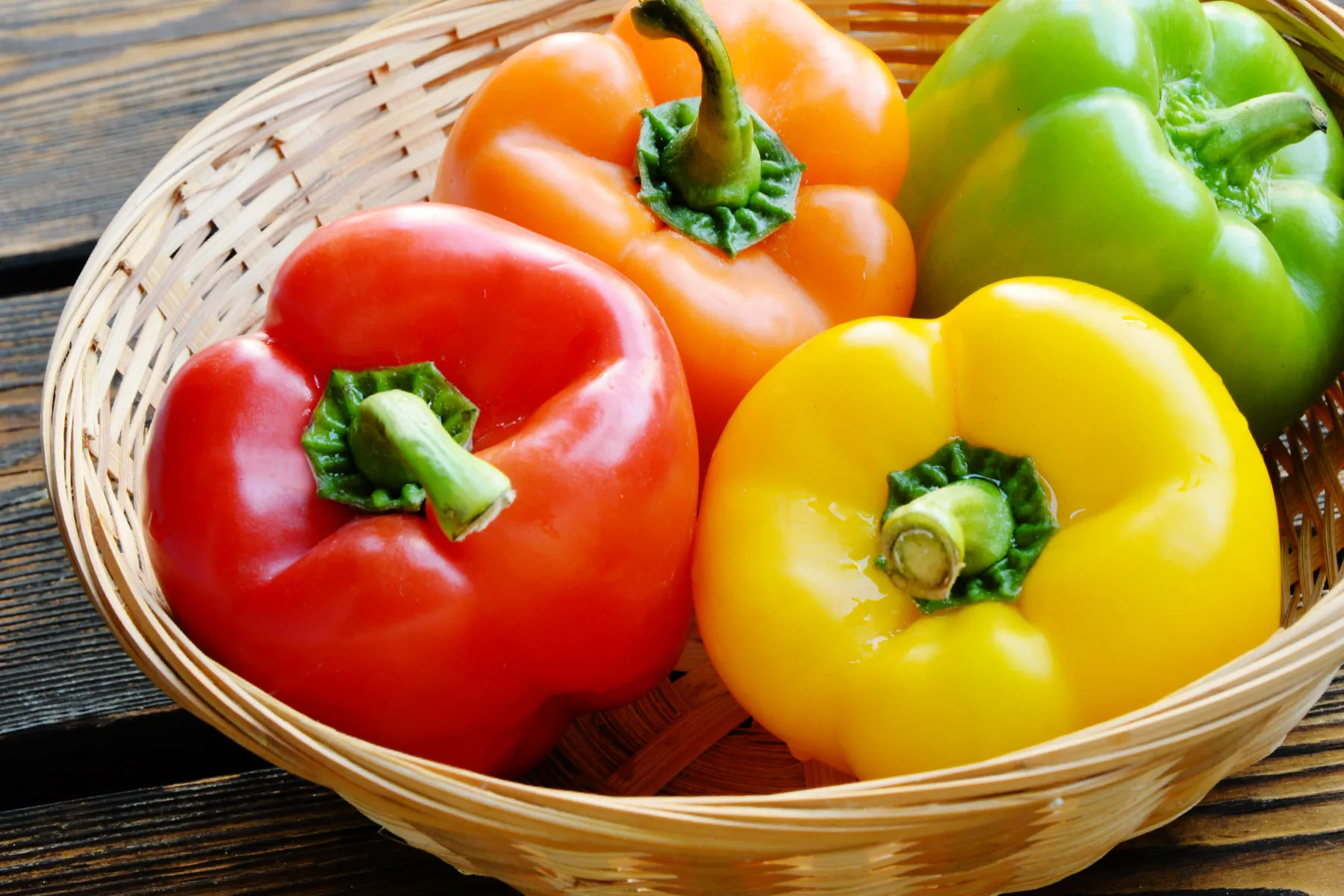Hello ladies and gents this is the Viking telling you that today we are talking about
Peppers
Sweet peppers – also known as bell peppers – are so versatile in cooking. They can be used raw in salads and cooked in stir-fries and casseroles.
They are easy to grow in a greenhouse, and will also do well outdoors in a really warm, sunny spot, in containers or in the ground.
Month by month
JANUARY FEBRUARY MARCH APRIL MAY JUNE
Sow Sow Sow Plant out Plant out
JULY AUGUST SEPTEMBER OCTOBER NOVEMBER DECEMBER
Harvest Harvest Harvest Harvest
Sow
- Sow seeds from mid-February to early April indoors in small pots or seed trays filled with seed compost.
- Place in a heated propagator at about 18–21°C (65–70°F), or on a warm windowsill and cover pots with a clear plastic bag or clear lid to keep the warmth and moisture in.
- Transplant seedlings into 7.5–9cm (3–3.5in) pots when two true leaves have formed.
- Young plants are available from garden centres in spring as an alternative to sowing.
Grow
- You can grow sweet peppers in a greenhouse or outdoors in a very warm, sheltered, sunny spot (at the base of a wall for instance).
- Choose a large container – 30cm (12in) or more – and good quality potting compost. They can also be planted in growing bags or in open ground.
- Move young plants into their final container in late April if growing in a heated greenhouse, mid-May if in an unheated greenhouse, or late May if growing outside. These plants are tender, so only move them outside once all risk of frost is past.
- Pinch out the growing tips when plants are about 20cm (8in) tall, to encourage branching, which should lead to more fruit. Sideshoots (the shoots forming between the main stem and leaves) can be further pinched back if you want even more but smaller fruits.
- You may need to stake plants if they produce a heavy crop of large peppers.
- Water regularly and feed with a high potash liquid fertiliser (such as tomato feed) once the first fruit has set.
Common problems
Glasshouse red spider or two spotted mite

Leaves become mottled, pale and covered in webbing, on which the mites can be clearly seen; leaves also drop prematurely.
Remedy
They thrive in hot, dry conditions, so mist plants regularly. Use biological control in the greenhouse.
Aphids

Look for colonies of greenfly on the soft shoot tips of plants or on leaves. They suck sap and excrete sticky honeydew, encouraging the growth of black sooty moulds.
Remedy
Use your finger and thumb to squash aphid colonies or use biological control in the greenhouse.
Blossom end rot

Dark blotches appear on the ends.
Remedy
Water regularly and not sporadically and never allow the soil to dry out.
Harvesting
Pick the fruits as required when swollen and glossy. Most peppers ripen from green to red, but other colours, including yellow, orange and purple, are available. Pick at whichever colour and stage of maturity you prefer, but bear in mind that leaving fruit on the plant to mature fully will hinder further fruit development.
And as always have a chilled day from the Viking

Comments
Post a Comment